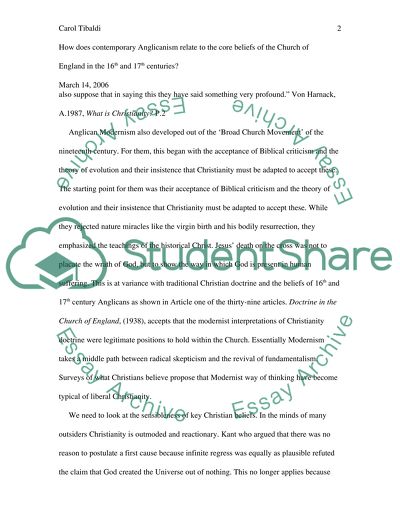Cite this document
(“How does contemporary Anglicanism relate to the core beliefs of the Essay”, n.d.)
How does contemporary Anglicanism relate to the core beliefs of the Essay. Retrieved from https://studentshare.org/miscellaneous/1502450-how-does-contemporary-anglicanism-relate-to-the-core-beliefs-of-the-church-of-england-in-the-16th-and-17th-centuries
How does contemporary Anglicanism relate to the core beliefs of the Essay. Retrieved from https://studentshare.org/miscellaneous/1502450-how-does-contemporary-anglicanism-relate-to-the-core-beliefs-of-the-church-of-england-in-the-16th-and-17th-centuries
(How Does Contemporary Anglicanism Relate to the Core Beliefs of the Essay)
How Does Contemporary Anglicanism Relate to the Core Beliefs of the Essay. https://studentshare.org/miscellaneous/1502450-how-does-contemporary-anglicanism-relate-to-the-core-beliefs-of-the-church-of-england-in-the-16th-and-17th-centuries.
How Does Contemporary Anglicanism Relate to the Core Beliefs of the Essay. https://studentshare.org/miscellaneous/1502450-how-does-contemporary-anglicanism-relate-to-the-core-beliefs-of-the-church-of-england-in-the-16th-and-17th-centuries.
“How Does Contemporary Anglicanism Relate to the Core Beliefs of the Essay”, n.d. https://studentshare.org/miscellaneous/1502450-how-does-contemporary-anglicanism-relate-to-the-core-beliefs-of-the-church-of-england-in-the-16th-and-17th-centuries.


